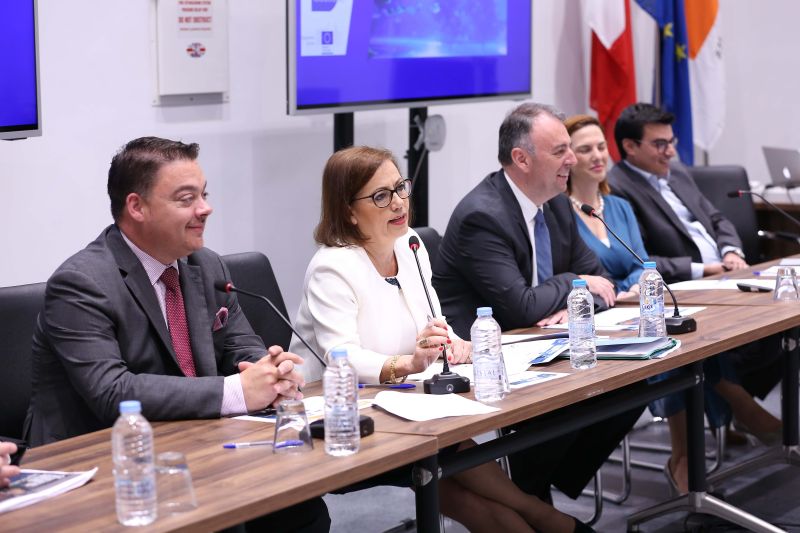Mark Cauchi Garzia, Head of Operations and Projects at Valletta Cruise Port plc put forward the views of the Cruise Industry during the MMF-WestMed Blue Skills conference organised on the occasion of European Maritime Day.
He explained that in forecasting the quantity of staff which will be required on cruise liners in the near future, one would need to take into consideration the fact that there are currently 101 confirmed cruise ships on order through 2027 with an orderbook value of $60.6 Billion
Since 2015, Valletta Cruise Port has formed part of an international venture – Global Ports Holding – following the acquisition of a majority stake in the Maltese Terminal. Being part of an international conglomerate has numerous benefits, not merely in terms of scale but also as it facilitates influence on global stakeholders.
At the European level, for instance, an initiative exists for skills and career development in the blue economy, spearheaded by the European Commission’s DG MARE. The initiative caters both for growth and skill gaps within 3 themes which have been identified as the main focus points, namely:
– Industry-Education Cooperation
– Ocean Literacy
– Lifelong Learning Future
Recent research on workforce demand indicates an increase in demand for maritime education and training. Besides, the maritime industry is challenged by pressing issues which are hindering growth in the marine leisure sector.
Principal amongst these challenges is the skills shortage but besides, new developments in automation and the current shift to greener sources of energy require new skills that need to be developed. The skill gap in Engineering is critical and more effort is required to encourage young people to opt for STEM subjects as a first step towards this career path. Meanwhile, the maritime industry must compete for scarce engineering talent with other industries (such as manufacturing) in a cut-throat competitive environment for people.
“We need to create, maintain and provide access to more formal training. This should be accessible for people who intend developing a career in the Maritime sector, for hard to fill vacancies and also for recognised learning for industry professionals. The Emergence of Digitalisation and automation is rapidly changing the requirements needed in the workplace. Covid-19 has shown the need for an agile and technologically adept workforce.
Working with a multination Organisation like Global Ports Holding provides knowledge sharing with industry colleagues and the opportunity to have access to direct learning outcomes within the Organisation. At the same time, addressing the gap is required to sustain the development Strategy earmarked by each country. It is up to each single operator to measure itself against performance benchmarks to enable us as Valletta Cruise Port to excel our performance to the desired level.”






